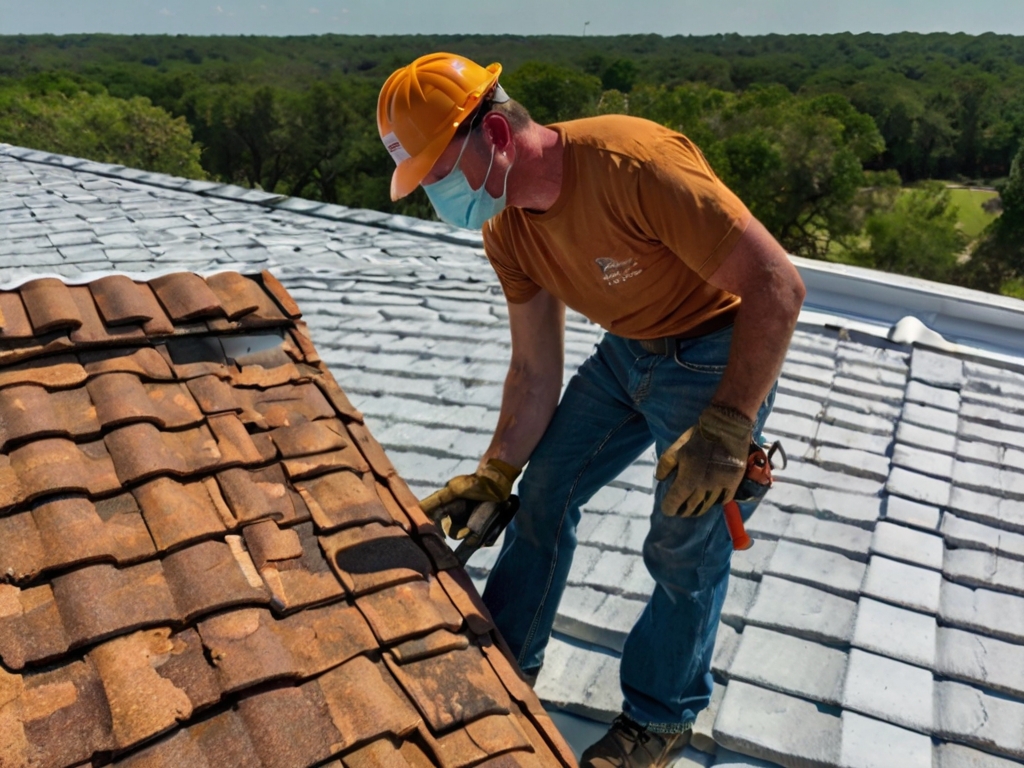In the construction and remodeling world, expanding across state lines can be a smart business move—especially for West Palm Beach, Florida roofing contractors looking to tap into Texas’s booming housing market. But before laying shingles in the Lone Star State, there’s a fundamental question that needs answering: How much is a roofing license in Texas?

The Short Answer: Texas Doesn’t Require a State Roofing License (But Read On!)
Let’s start with a surprising truth. Unlike many U.S. states—Florida included, where roofing licenses are strictly regulated—Texas does not require a statewide roofing license to operate as a roofer. This regulatory gap can be both an opportunity and a challenge. While there’s no central licensing fee, there are costs—monetary, legal, and reputational—you should prepare for if you’re a contractor from West Palm Beach considering operations in Texas.
Salient Entity Overview
To make this article fully SEO-optimized, let’s consider the primary and secondary entities:
- Primary Focus Keyword: How much is a roofing license in Texas?
- LSI Keywords: roofing contractor registration Texas, Texas Department of Licensing and Regulation (TDLR), roofing license cost Texas, local permits Texas roofing, out-of-state roofer Texas, West Palm Beach contractors, roofing business legal requirements
- Local Anchors: West Palm Beach, Florida roofing companies, Palm Beach County contractors, Florida DBPR, cross-state roofing regulations
Why Texas’s Roofing License Structure Differs from Florida
In West Palm Beach, roofing professionals must secure a license through the Florida Department of Business and Professional Regulation (DBPR), often costing between $300 to $500 in application fees, plus exam and continuing education costs. Florida requires:
- Passing a state licensing exam
- Demonstrating experience (4 years minimum in most cases)
- Proof of insurance and financial responsibility
- Background checks
In contrast, Texas operates on a “buyer beware” model. There’s no state-mandated roofing license, meaning there’s no standard license fee or exam for roofers. However, this doesn’t mean zero cost or regulation.
Understanding the Hidden Costs of Roofing in Texas
While there’s no state roofing license fee, several local and strategic costs must be factored in:
1. Voluntary Registration with the Roofing Contractors Association of Texas (RCAT)
To build trust with Texas homeowners and commercial clients, many contractors voluntarily register with the RCAT, which mimics a formal licensing system. Here’s the breakdown:
- Application Fee: ~$250
- Testing & Certification: ~$350
- Total Estimated Cost: $600–$700
- Renewal: Every year, with continuing education credits
Being RCAT-licensed can offer credibility and consumer trust—something essential for out-of-state contractors, especially those from West Palm Beach, where standards are stricter.
2. Local Permits and City-Specific Licensing
Several Texas municipalities, such as Austin, Dallas, and San Antonio, require roofers to:
- Register locally
- Obtain general contractor permits
- Show proof of liability insurance
Local permit fees range between $100 to $350, depending on the city and project size. If you’re managing operations remotely from Palm Beach County, understanding each municipality’s permitting process is crucial to avoiding fines or work stoppages.
3. Business Formation and Legal Costs
If you plan to expand or relocate your West Palm Beach roofing business to Texas, you’ll need to:
- Register your LLC or corporation with the Texas Secretary of State
- Fee: ~$300
- Apply for a Sales and Use Tax Permit via the Texas Comptroller
- Free, but mandatory
- Maintain a Registered Agent in Texas
- Cost: ~$100 to $300/year
These form the basic cost structure for out-of-state companies to legally operate in Texas—even without a formal roofing license.
Insurance and Bonds: Not Optional
Despite the licensing leniency, Texas does not exempt roofers from insurance responsibilities. In fact, proof of general liability insurance is typically required for permits or customer contracts.
- General Liability Insurance: ~$1,000–$2,000/year (depending on coverage)
- Workers’ Compensation (Optional but Smart): Varies, but adds protection
- Surety Bonds (if required by cities): ~$100–$500/year
If you’re a West Palm Beach-based roofer, this might mirror your Florida costs, but don’t assume uniformity. Texas does not regulate insurance minimums statewide, so you’ll need to meet local standards.
Why West Palm Beach Roofers Should Still “License Up” in Texas
Even though there’s no mandated roofing license fee, contractors from highly-regulated areas like West Palm Beach, FL should aim to exceed expectations in Texas. Why?
✅ Competitive Advantage
Most Texans are unaware there’s no roofing license requirement. Holding an RCAT certification, local permits, and insurance gives your brand a significant reputation edge.
✅ Legal Shielding
Texas has had numerous lawsuits involving unlicensed or poorly performing roofing contractors. By proactively adopting formalities, you reduce legal risk.
Cost Summary Table
| Item | Estimated Cost |
|---|---|
| RCAT Voluntary License | $600–$700 |
| Local Permits & City Registration | $100–$350 |
| Texas Business Formation | $300 |
| General Liability Insurance | $1,000–$2,000/year |
| Registered Agent | $100–$300/year |
| Total First-Year Cost (Est.) | $2,100–$3,650 |
Final Thoughts: Should West Palm Beach Contractors Invest in Texas?
If you’re a roofing contractor based in West Palm Beach, expanding into Texas could be a low-barrier, high-reward move—but only if you approach it professionally. While the question “How much is a roofing license in Texas?” may seem to suggest zero cost, the real price is in building trust, compliance, and scalability.
By managing the right paperwork, permits, and voluntary certifications, you can thrive in the Texas roofing market, even while your operations remain headquartered in West Palm Beach, Florida.